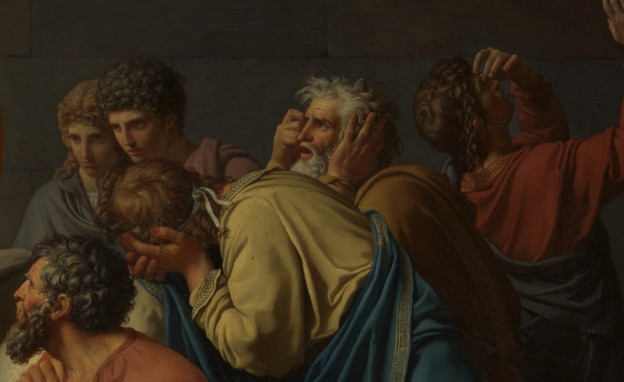Easter is a time that for many of us means a long weekend break from work, hot cross buns, and too much chocolate. But while these things are individually good (and together better), they are nowhere near as important as the reason for the long weekend, hot cross buns, and chocolate bunnies/eggs: the death and resurrection of Jesus.
Jesus’ death and resurrection is the hinge of history. It is the point all of history builds towards, and it is the point of all history we look back towards as we progress to history’s end – when Jesus returns and is given all glory. It demonstrates at once the judgement of God on sin – borne by Jesus – and the deliverance by God we have from our sin – through Jesus.
In the Old Testament, there were pictures of this judgement and deliverance which point towards the great fulfilment at the Cross. The Book of Judges is no exception. In the introductory passages of Judges, we have seen the decline of Israel from their days under Joshua to their indulgence in sin, and failure to keep covenant with God. Despite this, while God still visited judgement for sin, he also sent deliverance for his people.
Israel abandoned God by worshipping the false gods of the land of Canaan, encouraged by the inhabitants they had subdued rather than driven out (vv.11-13). God’s response to this abandonment was anger and judgement. God gave them over to “plunderers who plundered them” and sold them into the hands of their surrounding enemies whenever they invaded, instead of helping them (vv.14-15).
This act was something Israel should have foreseen, as it was just as “the LORD had warned, and as the LORD had sworn to them” (v.15). God was faithful to his word, both for their good and ill. As they had abandoned them, he judged them as threatened. This was no light punishment; Israel “were in terrible distress” (v.16).
But despite the judgement which God sent on Israel, which they justly deserved, that was not the end. “Then the LORD raised up judges, who saved them out of the hand of those who plundered them” (v.16). The people did not deserve deliverance from their oppressors, but God gave it anyway out of his grace.
The structure of this section of Judges makes it clear that despite the message of judgement in the verses surrounding, the central theme of this section is God’s grace and deliverance shown to his people.
Sadly for the people of Israel, God’s contemporary grace was just as quickly ignored as God’s grace and deliverance in years’ past. They quickly turned away from the message of the judges and the ways of their fathers, committing apostasy against God (v.17).
God’s love for his people melted his heart of anger and he rescued them time and again, but they still were not faithful and progressed in a downward spiral (vv.18-19). So God no longer permitted Israel to drive out the nations but left them to test Israel as a form of disciplinary judgement (vv.20-23).
This act demonstrates God’s patience with his people. God did not immediately write off Israel but sought through acts of judgement to discipline them back to him. The God who heard the crying out of Israel in Egypt and delivered them is the same God who heard the groaning of Israel in Canaan under his discipline, and raised up Judges to deliver them again and again.
Thus the nations which God in his sovereignty permitted to remain amongst the Israelites to teach them war were not because God failed to keep his promises, but because God saw the need for Israel to receive his discipline, to recognise their sin, and to receive his grace and forgiveness anew (3:1-6). The nations which were the indulgence of so much of their sin were also the means by which God proved which of his people would repent and turn to him.
The patient and longsuffering God of grace demonstrated in these verses is the same God whose patience and longsuffering for our sins was satisfied by Jesus’ death on the Cross. On the Cross, the judgement due to us all for disobeying God was poured out on Jesus, that we might be delivered from the enemies of death and sin that had subdued us.
We also see that the consequences of sin, in our own lives and that experienced by us because of the sins of others, is a way in which God is patiently disciplining us to leave sin behind and instead serve him.
We do not just experience God’s grace and mercy in the past when we became a follower of Christ, but every day as we experience God’s continued grace to us by forgiving us of today’s sins. All of this is not because of anything special about us, but because of God’s love, patience, and mercy for those he has chosen to love.
It is through Jesus, the greatest Judge, that we are delivered from the oppression of sin and death.

